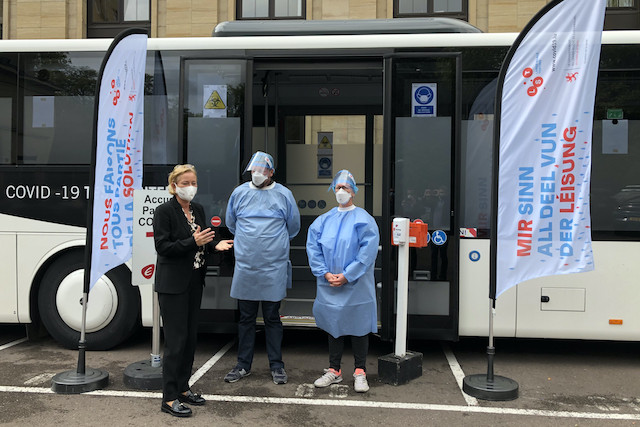Testing will remain an “important building block” in the government’s strategy to combat the coronavirus, health minister Paulette Lenert (LSAP) said at a press conference on Thursday.
In a first large-scale testing phase, the country had aimed to test its entire population for coronavirus. Around half a million tests were carried out through the scheme, finding around 600 infections out of the country’s 8,090 positive cases.
Building on the “experimental character” of the first phase, the second phase would be more targeted, Lenert said. Rather than testing everyone, sample groups will be invited for testing. They will come from different regions in the country, socio-economic backgrounds and professions to measure how the virus is advancing in these communities.
Only when the virus spread is found to gain speed in these sample groups will testing be expanded to larger parts of the population.
At the same time, workers in professions such as healthcare, hospitality and teaching will be tested regularly. To make testing more accessible, a bus has been converted into a testing station where up to four people at a time can get swabbed.
People returning from holiday will also continue being able to get tested for free, Lenert said. Around one-third of the new virus infections detected in the last week were found among holiday-goers, making it one of the main sources of cases.
For the first time, the government will also be carrying out antibody tests, although on a much smaller scale. While 53,000 so-called PCR tests are foreseen per week to detect active infections, this compares to 1,000 antibody tests.
The second phase of large-scale testing comes with a price tag of €60 million, which parliament agreed to before the summer.
“We wish nothing more than finding a way back to normality,” Lenert said, encouraging everyone who receives an invitation to get tested to take part in the scheme. Testing would not “chase the virus out of Luxembourg,” she said, but help keep infections at a low level.
Parliament this week voted to extend measures to contain the virus--such as limits on gatherings, the wearing of masks, and restrictions for restaurants and bar--until the end of the year.
As of Wednesday evening, there were 1,105 active virus cases in Luxembourg, a number well-above 50 cases per 100,000 inhabitants that many countries see as a threshold to identifying high-risk areas.
Belgium has put Luxembourg on its red alert list because of the recent increase in cases, and ministers in a press briefing on 23 September warned that other countries--like Germany--could also impose new restrictions on movement.
Updated 1 October at 8.34am: This article was amended to correct the number of cases found through large scale testing.
